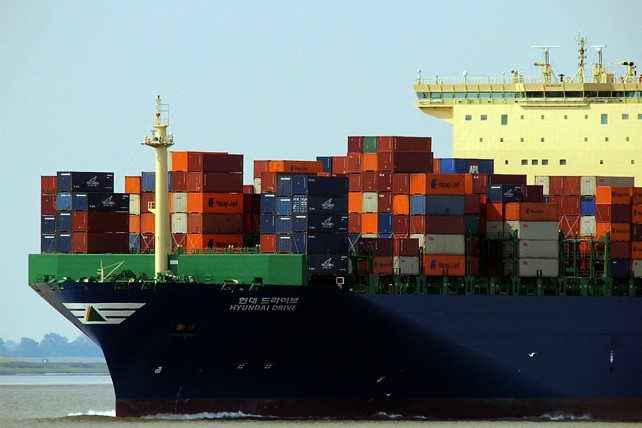As unprecedentedly large drug seizures take place in Sri Lanka, authorities are taking a variety of steps in an attempt to prevent their country becoming a major transit hub.
In just over a year, Sri Lankan customs have detected six high-value shipments of cocaine amounting to 1,770kg. This includes 928kg found on a ship in December 2016 – the largest-ever cocaine seizure in Asia. These seizures suggest that the nation is being increasingly used as a trafficking hub, as there is little to no local market for cocaine in Sri Lanka – it is unlikely that the drugs were intended to remain in the country.
Additionally, incidences of heroin detection are also on the rise. As the country’s International Narcotics Control Board (INCB) reported in March, “134 kg of heroin had been seized between January and June 2016, compared with 18 kg during the same period in 2015.”
On August 30, Law and Order Minister Sagala Ratnayaka alleged that drug trafficking surged in Sri Lanka due to involvement from the Tamil Tigers, a secessionist militant group. He claimed that the Tamil Tigers used funds from trafficking to finance their activities during the country’s 25-year civil war which ended in 2009. Since the war finished, he claimed, many of the same individuals have continued to undertake illicit trafficking.
Ratnayaka also pointed to Sri Lanka’s strategic location on shipping routes between Southeast Asia and Europe to explain why the country had become “a transit point for mass scale drug dealers".
This may be compounded by insufficient checks on international shipments. Shanaka Jayasekara, programme coordinator for United Nations Office on Drugs and Crime (UNODC) in Colombo claimed that people smuggle vast quantities of cocaine on ships, and "after reaching [Sri Lanka], they go out in small boats, they use fishing boats" to covertly bring the drugs ashore.
Drug policy in Sri Lanka is firmly prohibitionist. The Police Narcotic Bureau (PNB) states that it aims “towards freeing society from scourge of drugs,” and educating people on “the evils of drugs.” Sri Lankan President Maithripala Sirisena echoed these sentiments earlier this year when, in a statement on his website, he vowed to "save the country and the people from the drug menace".

President Sirisena has vowed to "save the country and the people from the drug menace" (Source: Wikimedia)
At the United Nations General Assembly Special Session on Drugs (UNGASS) in 2016, Ratnayaka outlined Sri Lanka’s plan to create a multi-pronged approach that targets the reduction of both drug supply and demand, with methods including increased counter-trafficking measures. He also announced that “the overall goal of the government in relation to the drug problem is an ambitious one, to reduce the drug supply and drug use to minimum levels by 2020”.
Towards this end, the government has amended their existing national policy on drugs from 2005. In August 2017, authorities described how a special police unit had been introduced to focus specifically on drug-related issues. Furthermore, the government established a Centre for Sharing Intelligence on Drug Trafficking earlier this year for “accurate information dissemination in South Asian and South East Asian regions.”
The nation is also turning to its peers for help. President Sirisena has stated “that leaders of many countries whom he met during state visits have assured him their assistance for the drug prevention activities”.
Most recently, at the two-day Indian Ocean Conference held on August 31 in Colombo, Sri Lanka reiterated its deep concern for drug trafficking and appealed to attending nations for support. In response, US Acting Assistant Secretary of State for South and Central Asian Affairs, Alice Wells, announced “we are also expanding our navy-to-navy relationship with Sri Lanka, with our first-ever naval exercise set for October.” Wells spoke about US initiatives to “improve intelligence-sharing among regional partners and improve capacity-building in areas like community policing, counter-narcotics, aviation security, and forensics analysis".
The Sri Lankan government seems ardently committed to preventing the country from developing into an established drug trafficking hub. It remains to be seen if its approach will successfully reach the 2020 goal of reducing drug use to “minimum” levels.


